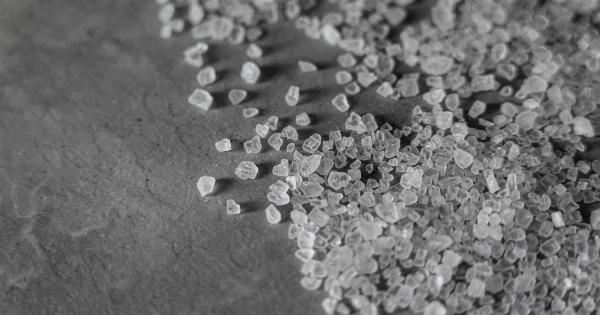When it comes to choosing between frozen and fresh foods, many people wonder which option is healthier and provides more nutritional benefits.
While both frozen and fresh foods have their own advantages, they differ in terms of nutritional content due to their processing methods. In this article, we will explore the top nutritional differences between frozen and fresh foods, helping you make informed choices for your diet.
Frozen Foods: Nutritional Pros and Cons
Frozen foods offer convenience and longer shelf life. However, the freezing process can affect their nutritional value. Here are some nutritional pros and cons of frozen foods:.
1. Preservation of Nutrients
The freezing process helps in preserving the nutritional content of foods. Fruits and vegetables are typically frozen at their peak ripeness, ensuring that vital vitamins and minerals are retained.
However, the duration of frozen storage can affect nutrient levels, with certain vitamins, such as vitamin C, being more prone to degradation over time.
2. Availability of Antioxidants
Several studies have shown that frozen fruits and vegetables can contain higher levels of antioxidants compared to their fresh counterparts.
This is because the freezing process can help in retaining these beneficial compounds, which play a crucial role in protecting our cells from damage caused by free radicals.
3. Limited Vitamin C Content
Vitamin C is sensitive to heat and oxygen exposure, both of which can occur during the freezing and thawing process. As a result, frozen fruits and vegetables may have lower vitamin C levels compared to their fresh counterparts.
However, it is worth noting that freezing can still help in preserving a significant amount of this essential vitamin.
4. Reduced Enzyme Activity
Enzymes present in fresh foods play a vital role in various processes in our body. Freezing slows down the activity of these enzymes, which can be beneficial in certain cases.
For example, freezing can help in preserving the texture and flavor of certain foods, as enzymes that cause ripening or deterioration are deactivated.
5. Potential Loss of Water-Soluble Nutrients
Some water-soluble nutrients, such as B vitamins and folate, may be slightly reduced during the freezing process. These nutrients can leach out into the surrounding liquid when foods are thawed.
However, this loss is generally minimal and can be minimized by using cooking methods that retain these liquids, such as steaming or microwaving instead of boiling.
Fresh Foods: Nutritional Pros and Cons
Fresh foods are often associated with higher nutritional value due to their minimal processing. However, they also come with their own set of pros and cons. Let’s explore them below:.
1. Higher Vitamin C Content
Fresh fruits and vegetables are typically higher in vitamin C compared to their frozen counterparts. This is because vitamin C is a delicate nutrient that can degrade over time, especially when exposed to heat and air.
Consuming fresh produce can help you maximize your intake of this essential vitamin.
2. Rich in Phytochemicals
Phytochemicals are natural compounds found in plant-based foods that have been associated with various health benefits. Fresh fruits and vegetables contain higher levels of phytochemicals compared to their frozen counterparts.
These compounds have antioxidant, anti-inflammatory, and cancer-fighting properties.
3. Seasonal Variability
One advantage of fresh foods is the availability of seasonal produce. Eating locally and seasonally allows you to enjoy a diverse range of fruits and vegetables, each packed with its unique set of vitamins, minerals, and antioxidants.
Additionally, seasonal produce is often fresher and has a more vibrant flavor.
4. Limited Shelf Life
Unlike frozen foods, fresh produce has a shorter shelf life due to its minimal processing. This means that if not consumed promptly, the nutritional value of fresh foods can decline.
To maximize the nutrient content, it is recommended to consume fresh produce as soon as possible after purchase.
5. Vulnerable to Spoilage
Fresh foods are susceptible to spoilage due to their limited shelf life. Improper storage, exposure to air, and microbial contamination can lead to nutrient loss and the growth of harmful bacteria.
Proper handling and storage, such as refrigeration, can help minimize these risks and preserve the nutritional quality.
Conclusion
Choosing between frozen and fresh foods is ultimately a matter of personal preference and convenience. While frozen foods offer longer shelf life and convenience, fresh foods often contain higher levels of certain vitamins and phytochemicals.
By understanding the nutritional differences between the two, you can make informed decisions to create a balanced and nutrient-rich diet.































